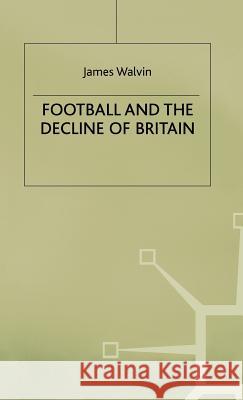Football and the Decline of Britain » książka
Football and the Decline of Britain
ISBN-13: 9780333422762 / Angielski / Twarda / 1986 / 139 str.
Football and the Decline of Britain
ISBN-13: 9780333422762 / Angielski / Twarda / 1986 / 139 str.
(netto: 383,36 VAT: 5%)
Najniższa cena z 30 dni: 385,52
ok. 22 dni roboczych.
Darmowa dostawa!
In the wake of the Bradford and Brussels football disasters in 1985, football in England was subjected to detailed scrutiny and criticism. Critics - of all sorts and persuasions - saw in those terrible events, especially the Brussels riot, evidence of the broader problems afflicting British (not merely English) life. Football, which had once represented so much of what was once considered good - fair- play, team play and sportsmanship - was now discussed as a major national problem. To most critics, at home and abroad, football came to represent a nation in decline, characterised by organised violence, drunkenness, political extremism and a host of related social problems. It was widely assumed that football - but especially those English fans who travelled abroad - was the epitome of what had gone wrong with life in urban Britain. It is understandable that those disasters would lead to heated and emotional argument. But many of the explanations of the events culminating in the disasters appear less convincing when scrutinised more closely. This book tries to examine not only the alleged roots of those violent incidents, but also to locate the problems afflicting the national game within the context of the broad social and economic changes which have transformed British life in the past generation. The book is as much an analysis of recent British social history as it is about the game of football.











